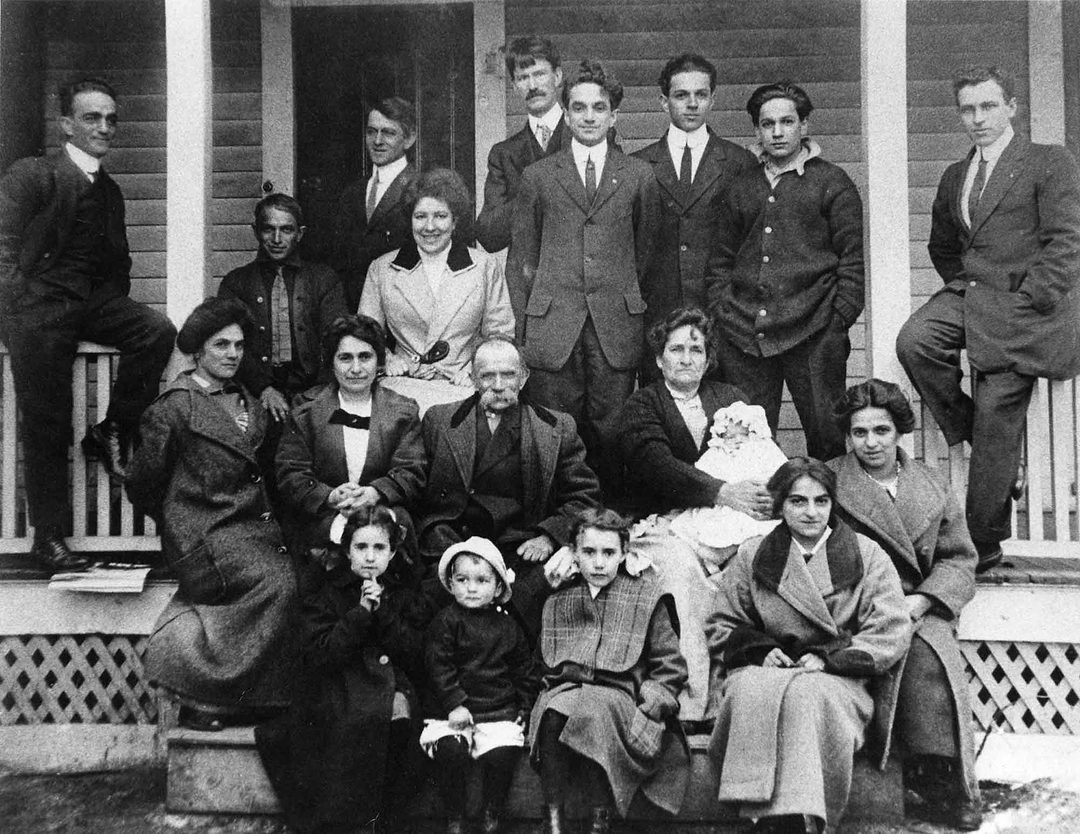
The William Munroe Special Collection’s mission is to understand and appreciate Concord’s history and culture. One unique collection administered by Special Collections is the Renee Garrelick Oral History Program (also known as the Concord Oral History Program). Its recordings and transcripts add a unique voice to Concord’s storied past.
Under the direction of Marjorie Garrard, in 1976, the Town of Concord’s Historical Commission established an oral history sub-committee “to coordinate and carry out a program for the collection of an oral history of the Town. A large number of residents of diverse backgrounds and interests will eventually be contacted and asked to respond to this program by recording their recollections of the Town as it was.” By 1977, local historian Renee Garrelick had already recorded 30 interviews, which the Commission reported, “are highly professional and the beginning of fulfilling a longtime goal of the Commission and other local historians.”

Renee Brosell Garrelick
Today, the Concord Oral History Program consists of nearly 500 interviews, including audio recordings and transcripts, with Concord residents sharing their memories of Concord. The oral history interviews feature individuals representing many aspects of Concord’s life, including business, education, the faith community, the arts, land conservation, historic preservation, and local government.
Among the many rich stories told in these recordings, interviewees include members of the Wheeler, Arena, Verrill, Bemis, Scimone, Palumbo, Kenney, McHugh, and Nowalk families, discussing farming in the twentieth century. Members of the Vanderhoof family take us inside the history of the Vanderhoof Hardware store’s 100 years on the Milldam. In other recordings, residents of the Conantum neighborhood describe life in Concord’s first significant residential development. In her interview, Mary Ogden Abbott explores the history of the Concord Art Association. Jean Bell and Diana “Di” Clymer discuss the Concord Prison Outreach program’s establishment, and Robert Carter talks about the family furniture business in West Concord. In other recordings, life-long residents reminisce about growing up in Concord, including memories of attending Concord High School, baseball games, sledding on Nashawtuc Hill, and swimming in Walden Pond.

Krist Andersen working at Macone Bros.Garage, Inc.
The interviews also document the experience of Concordians who lived and worked in locations worldwide. Several Concordians relate their grave and profound experiences during World War II; Carola Domar, Elizabeth Dopazo, Sonia Weitz, Norman Beecher, and Henry Wilayto among them. Joe Wheeler discusses his life, from farming roots in Concord to international service. Born on Thoreau Farm in 1926, Joe Wheeler spent most of his life abroad assisting farmers and others through the U.S. Agency for International Development, the Peace Corps, and the United Nations.

In addition to Renee Garrelick’s numerous interviews from the late 1970s through the early 2000s, in the 1980s, Bill Bailey, then chairman of the history program at Concord Academy, discovered an added dimension to Concord’s past by documenting the voices of immigrants in Concord. He set out to conduct nearly seventy interviews with immigrants from Ireland, Canada, Norway, Italy, Russia, Poland, and descendants of Jewish families living in Concord during the first quarter of the twentieth century. Those interviewed included Krist Andersen, members of the Bartolomeo family, John Macone, and Ida Jacobs Israel. Recording the memories of immigrants was an experience Bailey remembered as getting to know “the heart of Concord.” To feel that Concord was home, Bailey discovered, was not limited to a particular ethnic group, class, or those born here.

Esther Howe Wheeler Anderson
Renee Garrelick documented the voices of Concord residents for 30 years. Artist and photographer Alice Moulton’s photographic portraits accompany each transcript and form an essential part of the collection through 2006, providing “an enduring part of the public record and a personal connection with the individuals interviewed.” After Renee Garrelick passed away in 2007, independent contractors recorded additional interviews in the following decade. The late Debra Stark, owner of Debra’s Natural Gourmet in West Concord, was interviewed in 2013 and described her move to Concord, the establishment of her beloved store, and her philosophy of life. Most recently, Concord resident and professor of journalism at Northeastern University Carlene Hempel interviewed staff at all levels of Emerson Hospital about their experiences providing healthcare during the height of the pandemic. The program is called “Emerson Voices About the Covid Crisis.”
From its inception, the Town of Concord, through the Concord Historical Commission, has funded the oral history program, with additional support provided by the Garrelick family and joint oversight and administration by the Commission and the Concord Free Public Library. The collection, including all recordings, transcriptions, and associated documents, is housed and made accessible in the William Munroe Special Collections of the Concord Free Public Library. A selection of the interviews, including the audio recording and transcript, are currently accessible on the Library’s website at concordlibrary.org/special-collections/oral-history. Thanks to a generous grant from the Concord Community Preservation Fund, efforts are underway to digitize the remaining recordings and transcripts and make them available online in the coming year.
The Concord Historical Commission welcomes nominations for new oral history projects or individual interviews. Go to concordma.gov/2939/Concord-Oral-History-Program for more information and to download the application.
All photos courtesy of the Concord Free Public Library


